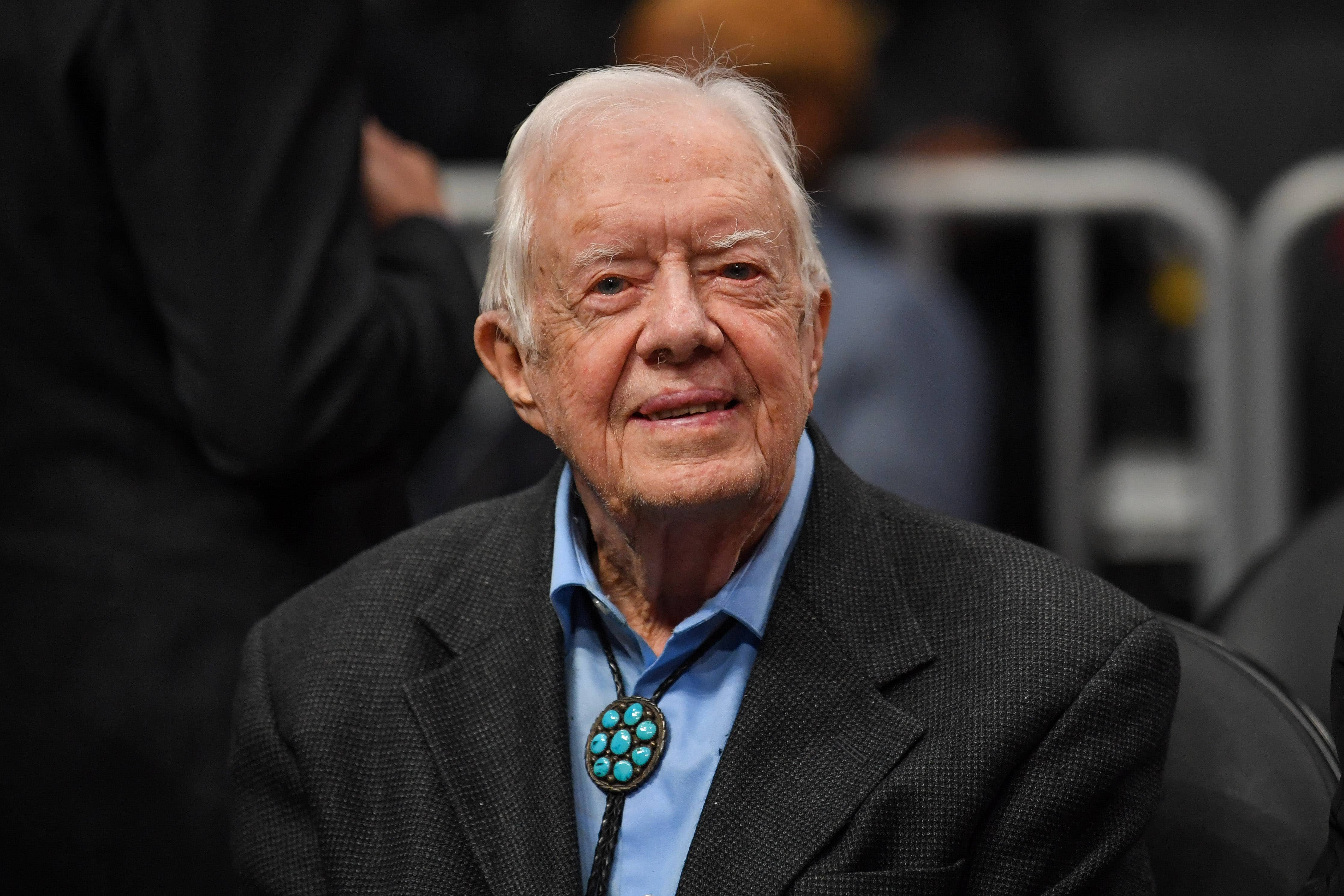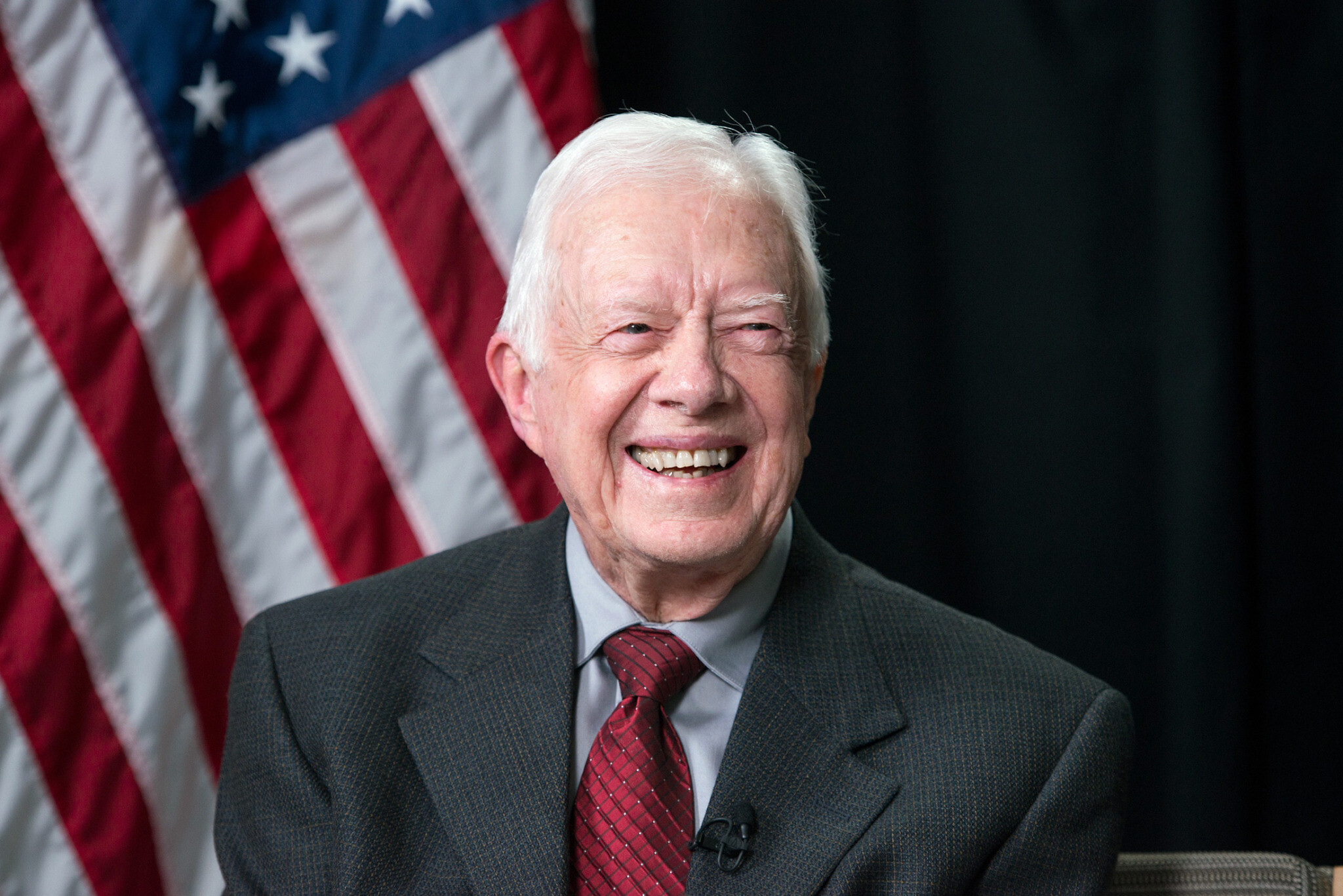Jimmy Carter’s Early Life and Education

Jimmy carter – James Earl “Jimmy” Carter Jr. was born on October 1, 1924, in Plains, Georgia, to James Earl Carter Sr. and Bessie Lillian Gordy Carter. His family was deeply rooted in the rural community, with a strong Baptist faith and a commitment to public service.
In the aftermath of the devastating ct tornado , former President Jimmy Carter emerged as a beacon of hope and resilience. With his unwavering commitment to aiding those in need, Carter traveled to the ravaged communities, offering comfort and support to the victims.
His presence reminded them that even in the face of adversity, they were not forgotten.
Carter attended public schools in Plains and graduated from Plains High School in 1941. He went on to study at Georgia Southwestern College, where he excelled academically and was elected president of the student body. In 1946, he graduated with a Bachelor of Science degree in agriculture.
Like Jimmy Carter, who dedicated his post-presidency to humanitarian efforts, tyler cherry also made a significant impact after leaving office. Tyler’s unwavering commitment to education and community development resonated with Carter’s own legacy of service, leaving an enduring mark on the lives of countless individuals.
Education and Career Path, Jimmy carter
Carter’s education had a profound impact on his career path. His strong academic record and leadership experience at Georgia Southwestern College prepared him for a life of public service. He went on to serve as a naval officer during World War II and later returned to Georgia to work in his family’s peanut farming business.
Jimmy Carter, the 39th President of the United States, is known for his unwavering commitment to human rights and peace. His legacy is closely intertwined with the struggles of Shaquille Leonard , a renowned civil rights activist. Carter’s support for Leonard’s work, particularly during the tumultuous era of the 1960s, played a pivotal role in shaping the course of the civil rights movement and ensuring the protection of basic human rights for all Americans.
Notable Experiences and Events
One notable experience that shaped Carter’s early life was his time spent as a midshipman at the United States Naval Academy in Annapolis, Maryland. During his four years at the Academy, he developed a strong sense of discipline and leadership, which would later serve him well in his political career.
In the annals of history, Jimmy Carter stands tall as a beacon of peace and progress. His unwavering commitment to environmental stewardship led him to champion the construction of the Rapidan Dam , a testament to his vision for a sustainable future.
This colossal structure, nestled amidst the rolling hills of Virginia, harnessed the power of the Rapidan River, generating clean energy while preserving the pristine beauty of the surrounding landscape. Carter’s legacy as a trailblazing environmentalist is forever intertwined with the enduring legacy of the Rapidan Dam.
Jimmy Carter’s Political Career

Jimmy Carter’s political journey began with his election as Governor of Georgia in 1970. As governor, he implemented progressive reforms, such as increasing funding for education and healthcare. His success in Georgia propelled him into the national spotlight, and in 1976, he won the Democratic presidential nomination.
1976 Presidential Campaign
Carter’s presidential campaign focused on restoring trust in government and addressing the economic challenges facing the nation. He promised to create jobs, reduce inflation, and promote energy independence. His outsider status and his promise of change resonated with voters, and he narrowly defeated incumbent President Gerald Ford.
Domestic Policies
As president, Carter faced significant domestic challenges, including the energy crisis, high inflation, and rising unemployment. He implemented policies aimed at addressing these issues, such as the National Energy Act and the Windfall Profits Tax Act. However, the economy remained sluggish, and Carter’s popularity declined.
Foreign Policies
In foreign policy, Carter pursued a more assertive and idealistic approach than his predecessors. He brokered the Camp David Accords, which led to a peace treaty between Egypt and Israel. He also promoted human rights and democracy around the world. However, the Iran hostage crisis, which began in 1979, overshadowed his foreign policy achievements and contributed to his defeat in the 1980 presidential election.
Jimmy Carter’s Post-Presidency and Legacy

After leaving the White House, Jimmy Carter embarked on a remarkable post-presidential career, marked by tireless humanitarian efforts, peace initiatives, and the establishment of the Carter Center, which has had a profound impact on global health and development.
The Carter Center
In 1982, Carter founded the Carter Center, a non-profit organization dedicated to promoting peace, health, and human rights worldwide. The Center has played a pivotal role in:
- Negotiating peace agreements and resolving conflicts in countries such as Haiti, Ethiopia, and Sudan.
- Eradicating diseases like guinea worm and river blindness, saving millions of lives.
- Monitoring elections and promoting democracy in various countries.
Jimmy Carter, the 39th president of the United States, is known for his humanitarian efforts and his dedication to promoting peace. He has also been a vocal advocate for environmental protection. In 2011, he visited Sun Prairie, Wisconsin, to raise awareness about the dangers of tornado warning sun prairie.
Carter urged residents to be prepared for severe weather and to take precautions to protect themselves and their property.